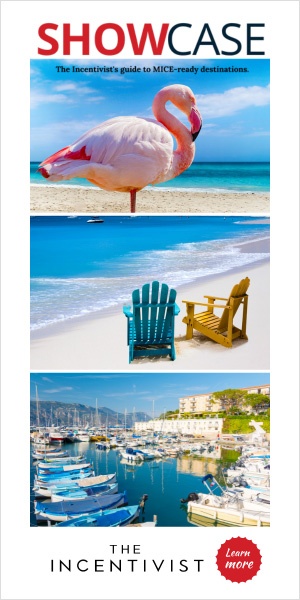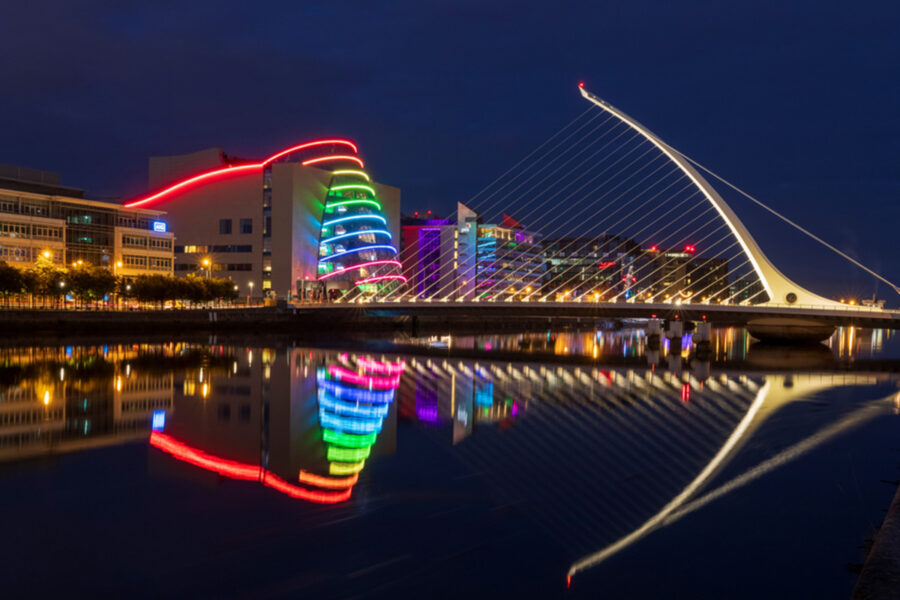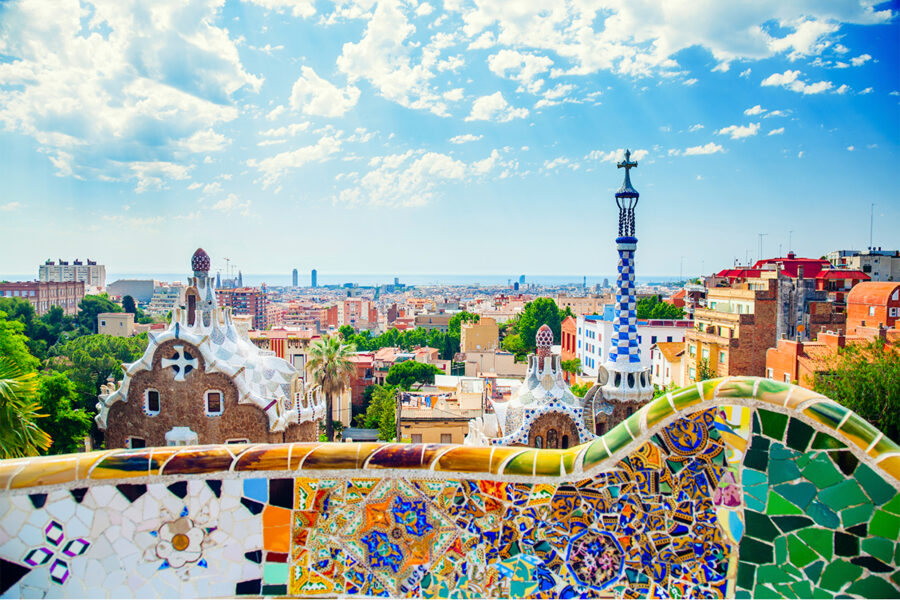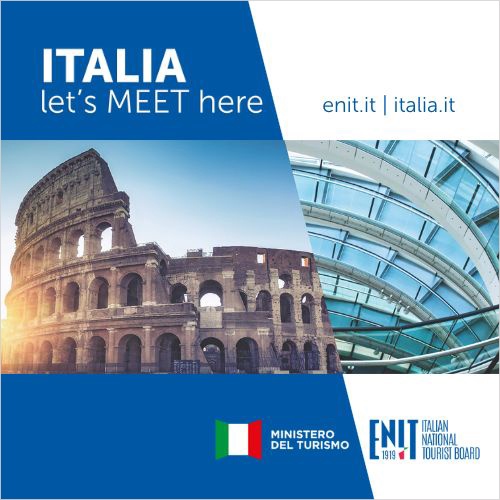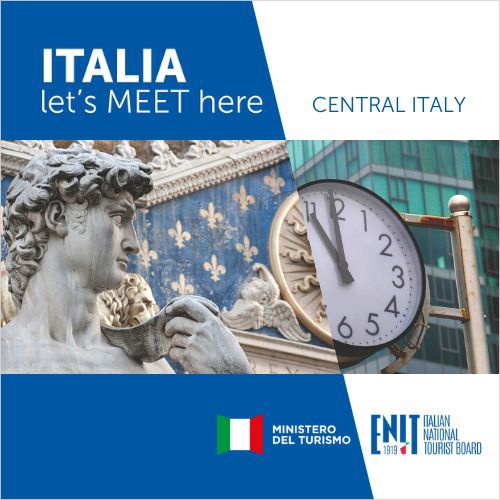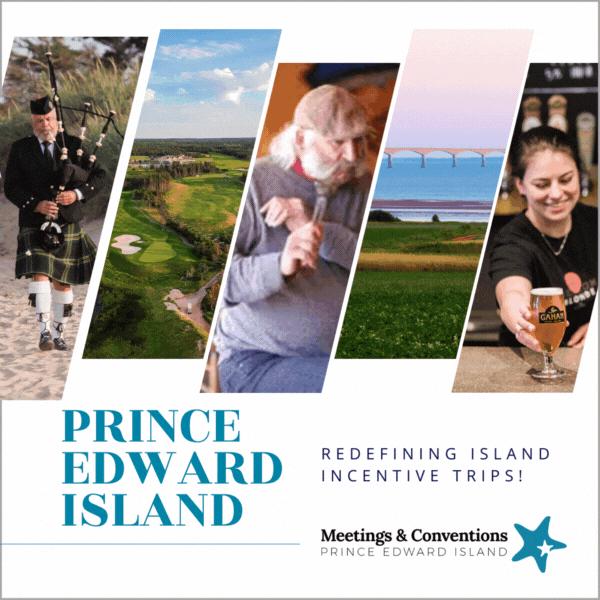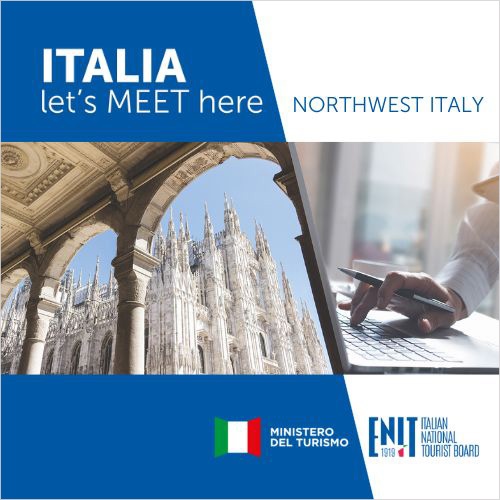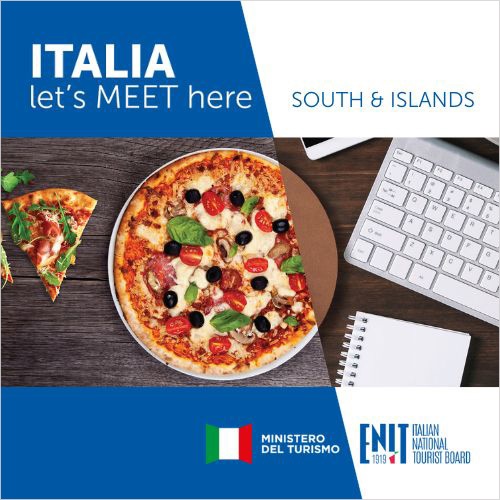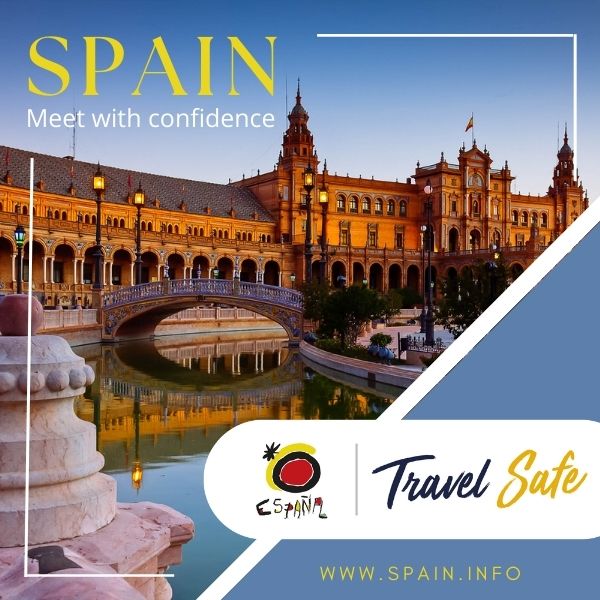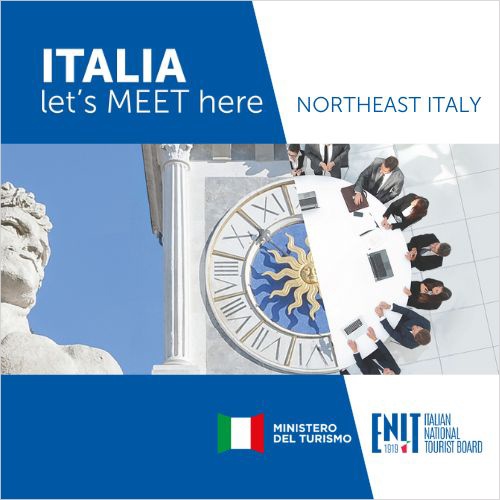Spain is a top destination for tourism and business events for a lot of reasons, including the six listed here.
 Spain is Safe
Spain is Safe

Spain has one of Europe’s highest COVID-19 vaccination rates and has implemented strong health security measures, making it safe to travel and meet in the country. Photo of traveler in Barcelona’s Gothic Quarter by martin-dm | Canva.
You can hold your next MICE event in Spain with total confidence. The country has one of the highest COVID-19 double vaccination rates in the European Union. It also boasts a highly professional health system capable of responding to the healthcare needs of its population.
All travelers arriving by air or sea must fill in a health control form. While those arriving from high-risk countries must accredit their health status by showing that they are vaccinated, have recovered from the disease, or have been tested proving that they are free of the infection. Control measures have been imposed to restrict flights from high-risk countries with different approved quarantine periods and extensions.
In addition, Spain’s hotels, convention centers, restaurants, event venues, and other hospitality and tourism businesses have adopted stringent health protocols to ensure the safety of travelers. These measures include cleaning and disinfecting, limiting occupancy levels, social distancing, promotion of hand hygiene, and requiring visitors and citizens to wear face masks on public transport or in enclosed spaces. Fortunately, the country’s high vaccination rate means that masks are not required outdoors provided the 1.5-meter social distancing rule is observed.
Confidence in the country’s COVID-19 health security measures is reflected in the offer of free insurance with COVID-19 coverage for international travelers and tourists available in some regions of Spain.
For more information about requirements to visit Spain and for tips to travel safely, please visit: https://travelsafe.spain.info/en/
 Spain has a world-leading infrastructure & MICE Network
Spain has a world-leading infrastructure & MICE Network
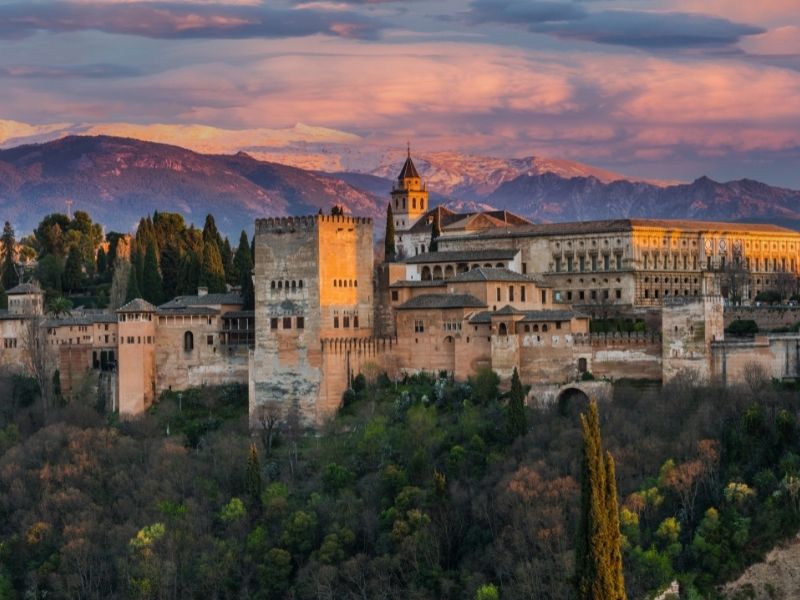
The Alhambra Palace in Granada (shown here) is one of 47 properties in Spain on the UNESCO World Heritage List. Photo by Marcin Jucha | Canva.
Spain is one of the top MICE destinations in the world. It ranked fourth in the International Congress and Convention Association’s 2019 rankings* of top convention countries. Madrid and Barcelona—its two largest cities—placed in the top five in the association’s rankings of top convention cities.
It earned these accolades thanks to its robust infrastructure, its extensive MICE supplier network, and its unique cultural offerings.
The numbers tell the story. Spain has 16,000 hotels and a network of nearly 100 Paradores, unique, luxury accommodations in castles, monasteries, and palaces. It has 40 dedicated conference centers. Its inventory of unique venues includes more than 1,500 museums. It is home to 15 World Heritage Cities—the third-largest number of UNESCO World Heritage Sites in the world—and a host of festivals and traditions, such as flamenco dancing, on the UNESCO Intangible Cultural Heritage List.
In addition, the World Economic Forum has recognized its infrastructure as one of the top ten in the world. Getting to Spain and around Spain is easy. Its transportation system is comprised of more than 30 international airports, seven major cruise ports, approximately 3,000 kilometers of high-speed railway, and Europe’s largest road and motorway network.
Helping planners connect with the right place and suppliers for their MICE event is the job of the Spain Convention Bureau, a network of dedicated meetings and events departments in cities around the country. Pre-pandemic, the Bureau and local suppliers organized more than 22,000 business events a year for nearly four million participants. They are ready to do that again.
*Last pre-pandemic rankings.
 Spain has made sustainability a nation-wide priority
Spain has made sustainability a nation-wide priority
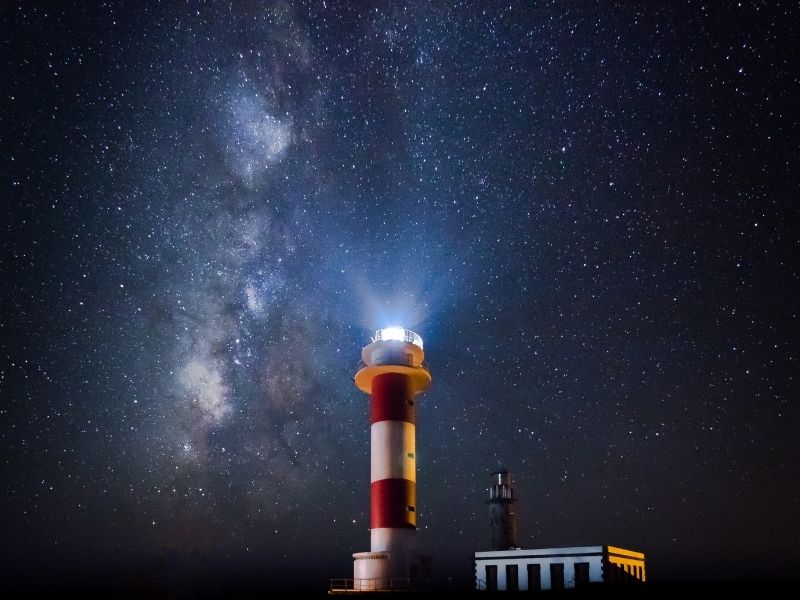
The island of La Palma, which has no light pollution, is one of the best places in the world for star gazing. Photo of La Palma’s nightsky and the Faro de Fuencaliente is by Robert Steinert | Canva.
As one of the world’s top tourism destinations, Spain is fully committed to the responsible use of its natural and cultural resources while at the same time helping improve the social and economic conditions of local inhabitants.
This commitment to sustainable tourism has not only been embraced by the government and destinations but also by key players in the hospitality and MICE industries, including hotels, convention centers, unique venues, transportation companies, and more. Sustainability is now part of Spain’s DNA.
Today, over one-quarter of Spain’s territory is dedicated to the preservation of nature. UNESCO has recognized it as the country with the most biosphere reserves in the world and the second-largest number of geoparks. A popular sun destination, environmental programs dedicated to keeping its waters clean have resulted in more than 500 of its beaches being authorized to fly the Blue Flag, an international designation signaling that stringent environmental, educational, safety and accessibility criteria have been met and maintained.
It also has 44 Protected Natural Areas that comply with the European Charter of Sustainable Tourism (ECST), and many activities and destinations acknowledged by pioneering initiatives like the Responsible Tourism Institute (RTI) and the Ecotourism Club, an initiative that directs travelers to experiences with an environmental commitment. These range from exploring sustainable gastronomy with a visit to one of the country’s growing number of ecomarkets to stargazing on La Palma in the Canary Islands, a place free of light pollution.
Other notable sustainability efforts include the Spanish National Railway Network’s use of electrical energy from, in large part, renewable resources, and the broad selection of hotels certified—look for Ceres Ecotur, Q for Quality, Ecolabel, Ecotourism Club, and Green Globe labels—for their environmental initiatives. A shining example has been set by the country’s state-run Paradores. The first hotel chain in Spain to abolish the use of plastic straws, bottles, and glasses and introduce biodegradable and compostable sugarcane containers, it is committed to sustainability and the circular economy and aligned its goals as a company with the Sustainable Development Goals established in the United Nations 2030 Agenda.
 Spain has great food and wine
Spain has great food and wine
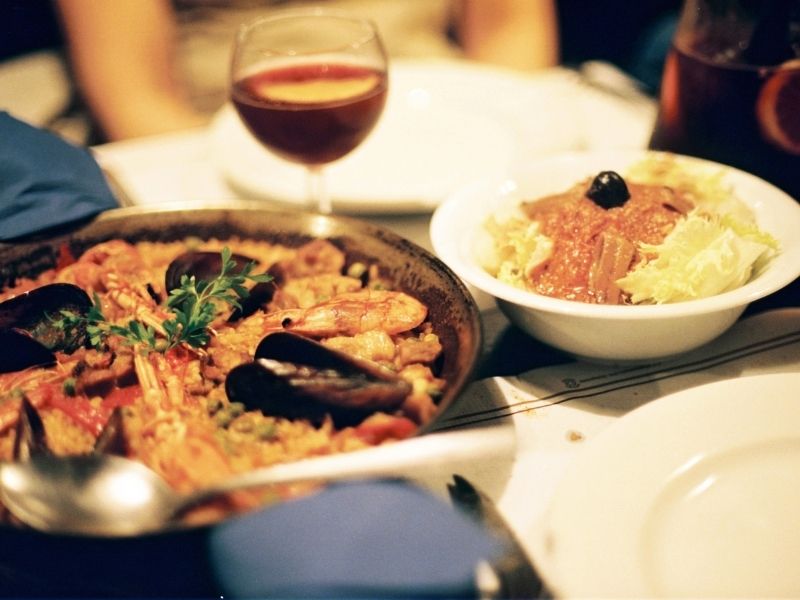
From tapas bars to seaside tavernas, food and wine plays a huge role in Spanish culture. Photo of paella by jroberblack | Canva.
Spanish cuisine is flavorful, healthy, and unique to the country but not intimidating. The country’s gastronomy offers something for everyone, even the fussiest eaters. And for the growing legions of foodies, it is a cornucopia with delectable dishes delivered in eateries ranging from Michelin-star restaurants (more than 200 in the country) to tapas bars and seaside tavernas.
Known around the world for its tapas tradition, dishes such as paella and gazpacho and delicacies like Ibérico ham, Spanish cuisine is actually very diverse. Each of its regions offers local delicacies and special dishes shaped by their history, geography, and climate. For example, Galicia and Asturias in the North of Spain, border on the cold waters of the Atlantic. As a result, their cuisine is rich in sauces and seafood. Central Spain, home to the country’s capital Madrid, is famous for its roast meats and cocidos (stews). While fried fish and saffron-rich foods can be found in regions like Andalucia and Valencia, which have coastlines along the warmer waters of the Alboran Sea and the Balearic Sea respectively.
Spain’s wine offerings are as wide and deep as its culinary offerings. One of the top producers of wine in the world, the country is famous for its rich Rioja, sparkling Cava, fortified sherry and more. Some 27 wine routes have been established within its borders. These allow visitors to sample its different varietals along with its different regions.
Together, Spain’s food and wine are a perfect pairing for MICE events.
 Spain has rooms for everyone
Spain has rooms for everyone
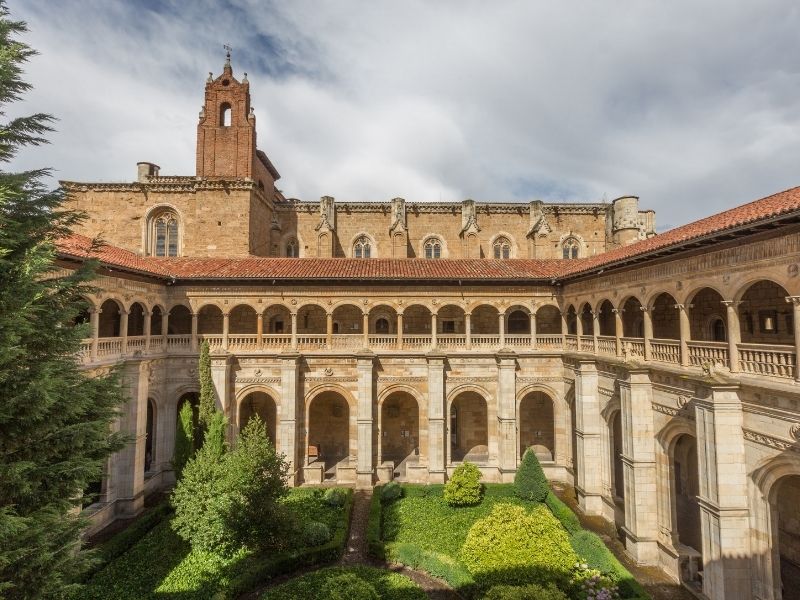
Many of Spain’s state-run paradores are housed in unique buildings. They are also leaders in sustainability initiatives. Photo of Paradore of Leon, Camino de Santiago by Maarten Hock | Canva.
Accommodations are an integral part of any MICE event’s success. Fortunately, Spain’s room inventory is broad and deep, ranging from modern luxury properties and state-of-the-art convention hotels to elegant retreats and sun-drenched resorts.
While all the major hospitality brands are well represented, it’s the country’s exceptional selection of historic hotels that sets it apart from other destinations. This group includes castles, palaces, convents, monasteries, and other historic buildings that have been converted into unique places to stay. Perhaps the best known are the state-run Paradores, a network of properties housed in buildings selected for their historical, artistic, and/or environmental value.
The country is also rich in renowned hotels. Royalty and celebrities like Elizabeth Taylor and Bette Davis have vacationed at the Hotel Maria Cristina in San Sebastian since it opened in 1912. Seville’s Hotel Alfonso XIII, which features palatial rooms and Neo-Mudéjar decoration, was home to the stars and crew of the movie “Lawrence of Arabia.” And Pamplona’s Gran Hotel La Perla, which opened in 1881, was the hotel of choice for author Ernest Hemingway and actor Charlie Chaplin.
There is also a wealth of non-traditional accommodation alternatives available for groups. Private villas, former castles, and country homes and estates are options to explore when planning your next event in Spain.
 And, to be honest, Spain has everything else!
And, to be honest, Spain has everything else!
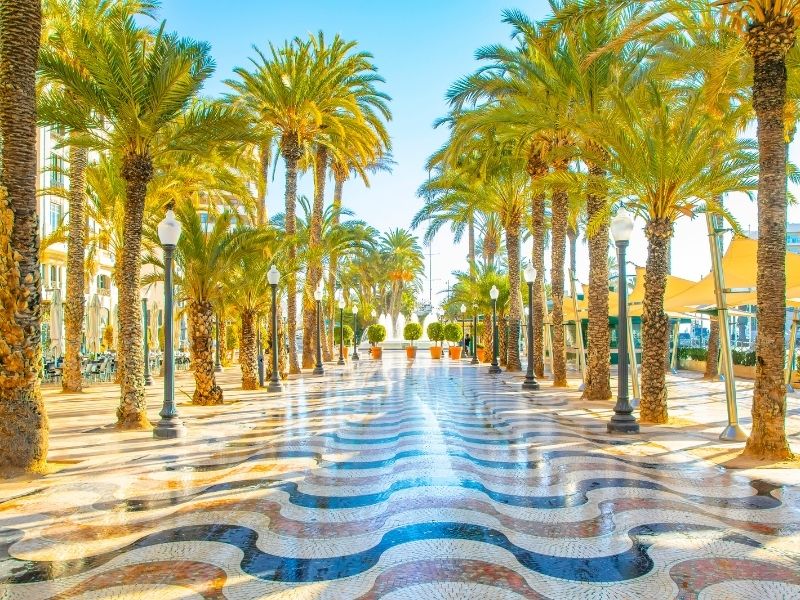
With more than 3,000 hours of sunshine a year, it’s easy to add outdoor activities to your business event’s itinerary. Photo of promenade in Alicante is by arcady_31 | Canva.
Spain truly has everything you need to deliver a winning event. Its climate is temperate with more than 3,000 hours of sunshine every year. This beautiful weather allows more outdoor elements like golf days to be confidently added to program itineraries. The country also has plenty of nature to explore—by foot, bicycle, car, or boat. Wellness experiences abound as well. Historic spas, hot springs and hydrotherapy centers are sure to relax and revitalize busy attendees. As will an afternoon—or day—at one of the country’s many beaches. Additionally, Spain has a rich culture and history that MICE event attendees can experience in myriad ways, such as cultural walks, flamenco lessons and cooking classes.
Authentic, beautiful, safe, accessible, multicultural, historic and cosmopolitan—that’s Spain today!
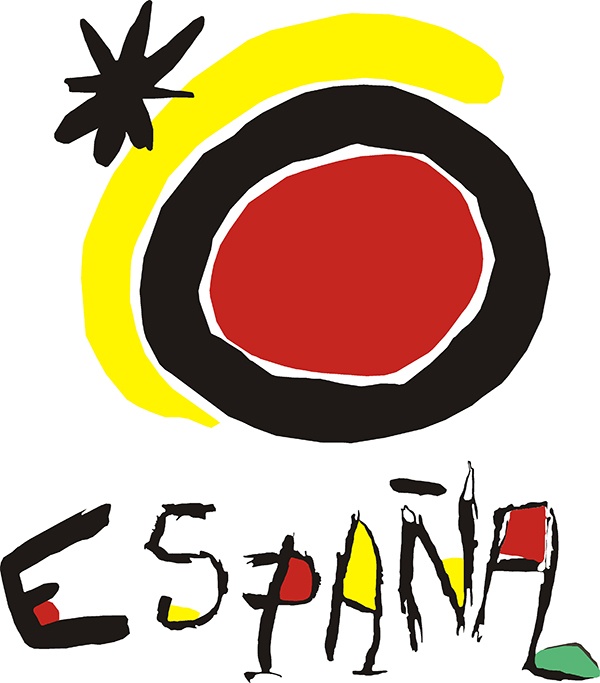 For more information, please visit Spain.info.
For more information, please visit Spain.info.


